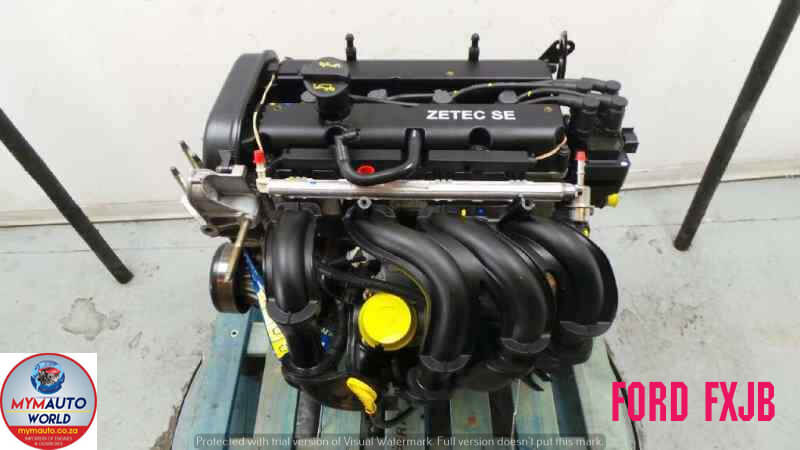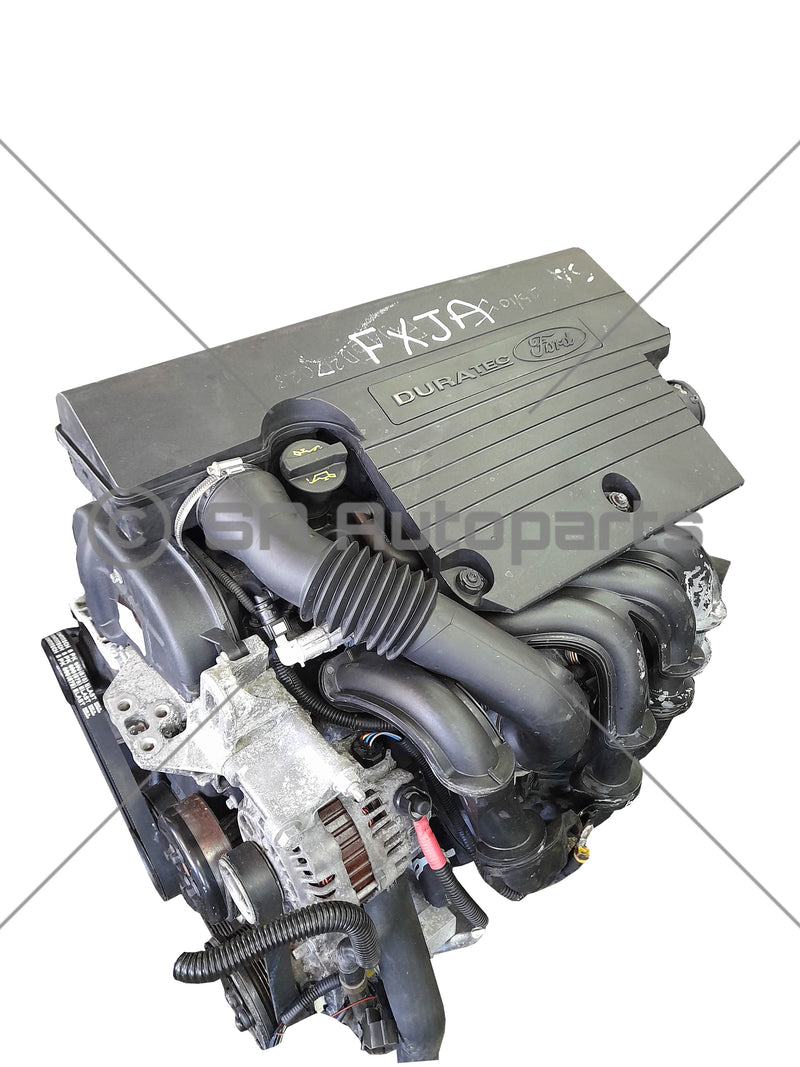The Future of Engines: Innovations Driving Lasting Power Solutions
As the automobile sector browses the imperative transition in the direction of sustainability, the future of engines is increasingly specified by groundbreaking advancements. Electric engine advancements, alongside appealing growths in hydrogen gas cells and biofuels, are improving the landscape of power services.
Electric Engine Developments
The development of electric engine advancements represents a pivotal shift in the aerospace and vehicle industries, driven by the immediate demand for sustainable options to nonrenewable fuel sources. This change is identified by significant improvements in battery modern technology, power electronics, and electrical motor design, which collectively boost the efficiency and efficiency of electrical engines.
Current technologies have actually led to the production of lighter, extra energy-dense batteries, such as lithium-silicon and solid-state batteries, which guarantee longer ranges and much shorter charging times. Furthermore, improvements in electrical motor efficiency, such as making use of irreversible magnets and advanced cooling down systems, make it possible for electric engines to operate effectively under differing problems. These improvements not only improve vehicle efficiency yet also add to a decrease in total energy consumption.
Additionally, the integration of sophisticated software application formulas has optimized energy monitoring in electric automobiles, permitting for regenerative braking and anticipating billing techniques. As manufacturers increasingly embrace electrical propulsion, the automotive and aerospace fields are seeing a standard shift in the direction of greener modern technologies. This development not only satisfies governing needs however also aligns with customer preferences for ecologically pleasant transport solutions, solidifying electric engines as a keystone of future lasting movement.
Improvements in Biofuels
As the aerospace and auto markets progressively focus on lasting power resources, developments in biofuels become a complementary solution to electrical engines. Biofuels, originated from natural products such as crops, waste, and algae, offer a cutting-edge method for minimizing greenhouse gas emissions and dependence on nonrenewable fuel sources.
Recent research has concentrated on improving the effectiveness and sustainability of biofuel production. Second-generation biofuels utilize non-food feedstocks, reducing competitors with food supply and decreasing ecological impact. Furthermore, improvements in artificial biology have actually made it possible for the engineering of microbes to create biofuels better, causing greater yields and reduced production expenses.
Additionally, the growth of drop-in biofuels permits smooth combination into existing infrastructure, enabling a smoother shift for markets typically dependent on fossil fuels. ford fiesta engine. These fuels can be used in present engines without modifications, facilitating their adoption across different sectors
Investments in biofuel innovation, along with helpful policies, are important to drive advancement and scalability. As the international community looks for to combat climate modification, biofuels offer a practical, prompt service that straightens with the overarching goal of sustainability in transportation and aeronautics.
Hydrogen Gas Cell Innovation
An expanding variety of scientists and business are checking out hydrogen gas cell innovation as a viable option to traditional source of power in transportation and power systems. This innovation converts chemical energy from hydrogen right into electrical energy with an electrochemical response, with water as the only by-product, making it an ecologically friendly option.
The core of hydrogen fuel cells is the fuel cell pile, where hydrogen particles are divided right into electrons and protons. The flow of electrons generates electrical energy, while protons relocate with a membrane to incorporate with oxygen from the air, developing water. This procedure leads to high performance and low emissions, placing hydrogen fuel cells as a vital gamer in the shift to sustainable power.
Significant developments have actually been made in improving the sturdiness and effectiveness of fuel cells, together with lowering prices through cutting-edge manufacturing methods. The advancement of hydrogen manufacturing approaches, such as electrolysis powered by eco-friendly energy sources, improves the sustainability of the general system. As framework for hydrogen refueling expands and manufacturing approaches become much more effective, hydrogen fuel cell technology holds great guarantee for decarbonizing different markets, consisting of durable transportation and fixed power generation.
Crossbreed Equipments and Their Influence
Hybrid systems represent a considerable evolution in sustainable engine modern technology, merging typical inner combustion engines with electric propulsion to maximize power effectiveness and minimize emissions (ford fiesta engine). This twin strategy permits lorries to make view it now use of both source of power, enabling higher versatility in energy consumption and lowering reliance on fossil fuels

In enhancement to ecological benefits, crossbreed systems offer customers a viable transition in the direction of completely electrical vehicles. They alleviate variety stress and anxiety by integrating the benefit of gas with the advantages of electric propulsion, making them an appealing choice for a wider audience.
The Duty of AI in Engine Design
Leveraging advanced formulas and artificial intelligence strategies, the automotive industry is significantly integrating synthetic knowledge (AI) right into engine layout procedures. AI enhances the effectiveness and performance of design by examining huge datasets to identify optimal setups and performance specifications. This ability allows designers to imitate various operating conditions and anticipate engine actions under several circumstances, substantially lowering the moment and price connected with standard prototyping techniques.
Furthermore, AI helps with the advancement of sophisticated materials and combustion processes customized for sustainability. By optimizing fuel efficiency and minimizing emissions, AI-driven layouts straighten with global initiatives aimed at lowering the carbon footprint of vehicle engines. Artificial intelligence algorithms can additionally anticipate upkeep requirements, leading to improved reliability and longevity of engine components.
Moreover, AI is instrumental in the assimilation of electrification technologies, such as hybrid systems, where it can optimize battery monitoring and power healing processes. As the industry relocates in the direction of more lasting power options, the function of AI in engine design becomes significantly important, driving technology and improving the performance of future engines. Eventually, the partnership in between AI and engine style declares a brand-new era of smarter, cleaner, and extra reliable vehicle technologies.

Final Thought
Finally, the future of engines is being formed by a merging of cutting-edge technologies that focus on sustainability. Electric engine improvements, biofuel developments, hydrogen fuel cells, and crossbreed systems collectively contribute to a substantial reduction in discharges Resources and ecological effect. Furthermore, the combination of expert system in engine layout improves performance and performance. These transformative solutions underscore a dedication to producing a cleaner, a lot more lasting automobile landscape, eventually profiting both culture and the setting.
Electric engine advancements, together with promising growths in hydrogen gas cells and biofuels, are reshaping the landscape of power remedies. In addition, enhancements in electric motor efficiency, such as the use of irreversible magnets and advanced cooling systems, allow electric engines to run efficiently under varying conditions. By enhancing gas effectiveness and minimizing emissions, AI-driven layouts straighten with global initiatives intended at lowering the carbon impact of vehicle engines. As the industry moves towards even more lasting power services, the role of AI in engine design comes official website to be increasingly essential, driving advancement and enhancing the performance of future engines. Electric engine developments, biofuel developments, hydrogen fuel cells, and hybrid systems jointly add to a significant reduction in discharges and ecological effect.